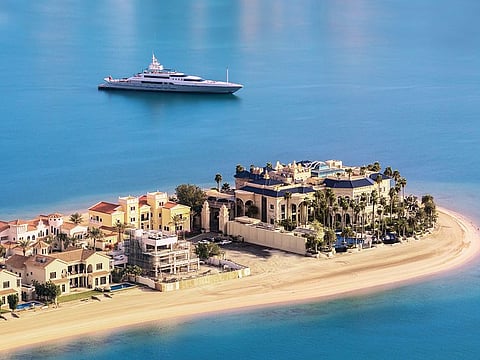Why it’s the right time to buy luxury property in Dubai
Real estate agency AX CAPITAL lists reasons for investing in Dubai’s prime properties

Dubai’s residential property market is continuing its remarkable turnaround since the UAE caught the world’s attention through its excellent management of the Covid-19 pandemic, with the luxury segment registering its highest proportion of transactions last year. In Dubai’s Covid Comeback - 2022 report, Knight Frank says prime property transactions made up 3.6 per cent of the total sales for the first time in 2021.
“2021 was remarkable for its deal volume, but 2022 year-to-date is explosive, surpassing transactional volume by, or shying away from, a 100 per cent when comparing month-on-month data,” says Hisham El Assaad, Head of Sales at AX CAPITAL, a leading real estate agency that deals in luxury properties in Dubai.
With increased appetite for luxury across apartments and villas and developers remaining extremely bullish during the summer announcing launches and sell-outs in record time without any signs of a project launch slowdown, he believes the market will continue to experience an uptake.
“Dubai’s positioning as a city of the future continues to lure an expat population from across the world increasing demand for residential real estate,” El Assaad explains. “It is a compelling destination for many foreign buyers as luxury property remains undervalued per square foot in comparison to many other international destinations.”
At an average price of Dh3,500-Dh4,500 per square foot, prime properties in Dubai are up to five times lower in sale value for wealthy international buyers, compared to other global destinations such as London, New York and Singapore, he adds.
The UAE’s deft handling of the pandemic and a quicker return to normalcy after a single six-week lockdown also brought Dubai under the radar of international investors. Ultra-high-net-worth individuals (UHNWIs) from Russia to India to Europe including Monaco, for whom open borders and international travel mattered more, started scooping up expensive homes in Dubai.
With property as a hedge against inflation across all categories, be it luxury, midscale or upscale, El Assaad says the unprecedented surge in the local luxury market is connected to inflation too, which is a trend in major global cities. “Luxury property being more affordable than in Singapore, Hong Kong, New York and Paris are also contributing factors, attracting rich foreign buyers to acquire and most likely hedge against international inflation unravelling everywhere around us.”
El Assaad believes UHNWIs and HNWIs should seize this moment and store value by purchasing luxury property as historical data on Dubai real estate shows increase in price per square foot after each cyclical phase.
“In our opinion the primary reason investment is pouring into the luxury market is the UAE’s progressive leadership and their execution to overcome global turbulences through plans that are simply actioned,” he says. “Everything else becomes a trickle-down impact and movement across all industries including real estate.”
The introduction of new residency options such as the Golden Visa for investors and talent as well as changes in business regulations like the removal of the need for an Emirati sponsor and the opportunity to have 100 per cent foreign-owned businesses have also had a positive impact on the real estate sector.
However, as the demand for high-end property continues unabated, there is a shortage of uber-luxury properties, especially villas, which is expected to drive prices further up.
“The land bank across mature districts has become scarce, and the Covid-19 pandemic appears to have ushered in a new approach from developers to maximise their offering and add-on services by branding communities or buildings and integrating them with the lifestyle desire of buyers,” explains El Assaad. “We have seen the use of high-end material across the luxury segment to set itself apart from upscale as well as midscale products, where in the past difference between these segments was minimal.”
Add to this Dubai’s status as a global safe haven, foreign buyers’ seemingly insatiable appetite for luxurious homes in the emirate and domestic end users’ demand for more space, and the luxury property market seems set to continue its rebound.
This content comes from Reach by Gulf News, which is the branded content team of GN Media.